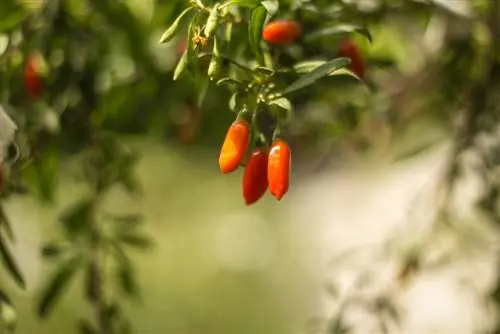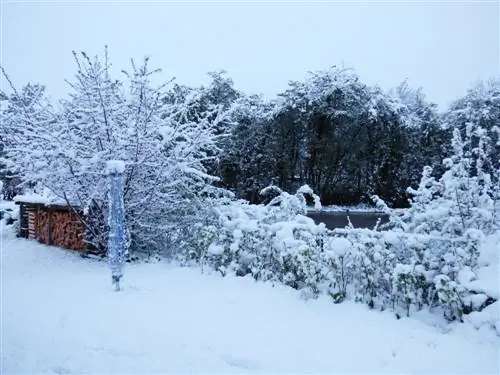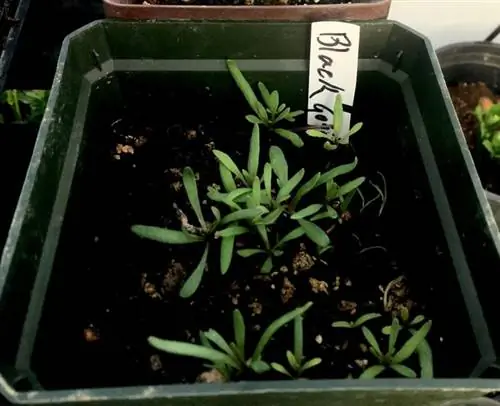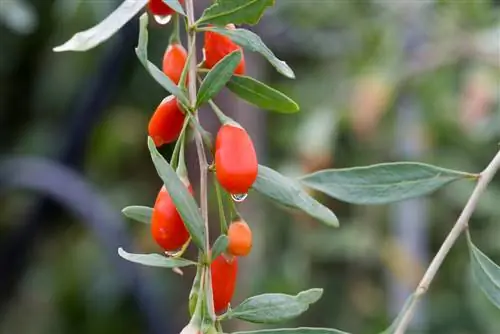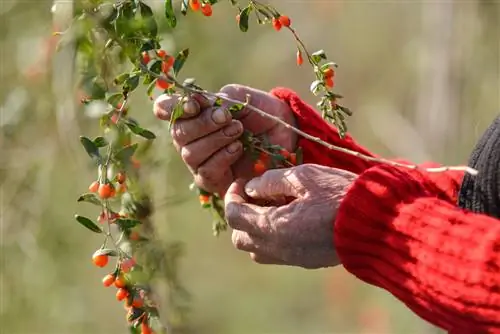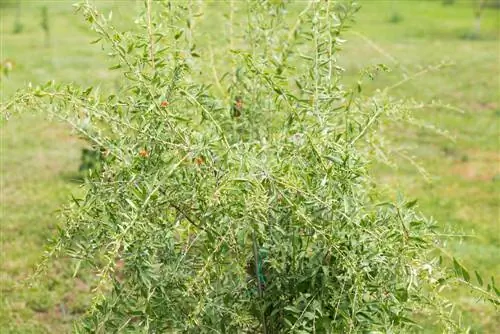- Author admin leonars@hobbygardeners.com.
- Public 2023-12-16 16:46.
- Last modified 2025-01-23 11:21.
If goji berries are planted in a garden, it is usually less because of the charming-looking flowers than with the aim of getting the most abundant berry harvest possible. While the respective plant variety and the chosen location play an important role, the fertilization of these shrubs should be viewed as secondary.
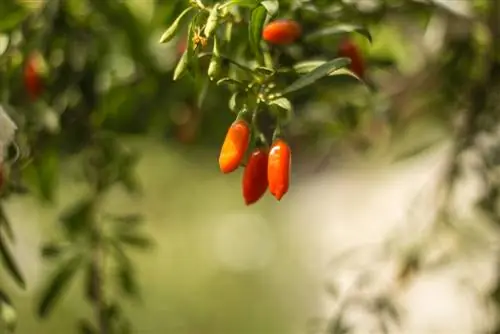
How do you fertilize goji berries correctly?
Goji berries do not require any special fertilization as they thrive on poor soils. Spread compost around the bush once a year or work it into the planting hole when planting is enough. Avoid nitrogen-containing fertilizers to prevent reduced crop yield.
Under suitable conditions, the goji berry is extremely undemanding
In a sufficiently sunny and warm place with a permeable soil substrate, optimal growth conditions are available for the goji berry. Quite a few garden owners ban this plant from their garden precisely because it can sometimes tend to overgrow, even with little care. When it comes to the goji berry, the question of nutrient supply is not so much an issue, as it can easily survive even in poor soils. However, the roots should be protected from waterlogging with good drainage.
Compost is sufficient for nutrient supply
To supply goji berries with the nutrients they need, it is completely sufficient if some compost is spread around the base of the bush once a year. If goji berries are newly planted, stored compost can also be worked directly into the planting hole. If the soil is relatively heavy, you should also use some coarse-grain sand to loosen up the soil structure. If goji berries really appear weakened and do not produce flowers, then this is usually not due to insufficient fertilization, but rather to one of the following factors.
- Lack of winter hardiness of late planted young plants
- Susceptibility to mildew
- summer drought
Be careful when using plant fertilizer
In principle, special berry fertilizers (€10.00 on Amazon) from specialist retailers can also be used for goji berries. However, you should make sure that the fertilizer you use does not have an excessively high nitrogen content. Otherwise, this would only stimulate excessive growth of the plant mass in the goji berries, which is usually accompanied by a smaller harvest quantity.
Tip
With regard to fertilizing the goji berries with compost from your own garden, for plant protection reasons, care should be taken not to deposit cuttings from bushes affected by powdery mildew in your own compost heap, but rather to dispose of them elsewhere.

